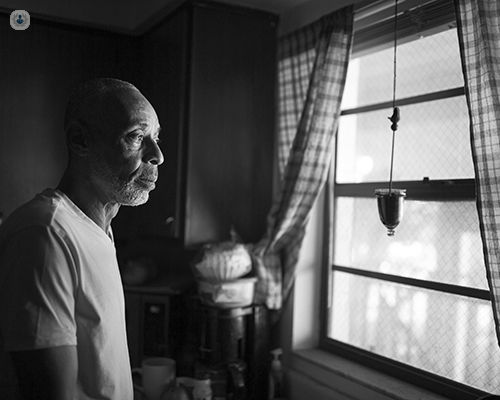What is the relationship between anxiety and depression?
Autore:Anxiety and depression are two of the most common mental health conditions, affecting millions of people worldwide. Although they are distinct disorders, they often occur together and share many symptoms, which can make them challenging to differentiate and treat effectively.
Here, renowned consultant child, adolescent, and adult psychiatrist, Dr Teresa Gomez Alemany, discusses the conditions in more detail.

How is anxiety defined medically?
Anxiety is characterised by excessive worry, fear, or nervousness about everyday situations. People with anxiety disorders may experience intense, prolonged feelings of apprehension or dread that are disproportionate to the actual threat.
Physical symptoms such as increased heart rate, sweating, trembling, and difficulty concentrating are common. Anxiety can manifest in various forms, including generalised anxiety disorder (GAD), panic disorder, social anxiety disorder, and specific phobias.
What does depression entail?
Depression, on the other hand, involves persistent feelings of sadness, hopelessness, and a lack of interest or pleasure in activities once enjoyed. Individuals with depression may also experience changes in appetite and sleep patterns, fatigue, difficulty concentrating, and thoughts of death or suicide. Major depressive disorder (MDD) is the most well-known form, but depression can also appear as part of bipolar disorder, dysthymia, or seasonal affective disorder.
What is the relationship between anxiety and depression?
The interplay between anxiety and depression can create a vicious cycle. Anxiety can lead to feelings of frustration and helplessness, contributing to depression. Similarly, depression can amplify feelings of anxiety, leading to more severe symptoms and complicating treatment. Understanding the link between these conditions is crucial for effective management.
How are anxiety and depression treated?
Treatment for anxiety and depression often involves a combination of psychotherapy, medication, and lifestyle changes. Cognitive-behavioural therapy (CBT) is particularly effective for both conditions, helping individuals identify and challenge negative thought patterns and develop healthier coping mechanisms. Medications, such as selective serotonin reuptake inhibitors (SSRIs) and serotonin-norepinephrine reuptake inhibitors (SNRIs), can help regulate mood and reduce symptoms.
Lifestyle changes can also play a significant role in managing anxiety and depression. Regular exercise, a balanced diet, adequate sleep, and mindfulness practices such as meditation and yoga can all contribute to improved mental health. Building a strong support network of friends, family, or support groups can provide invaluable emotional support and reduce feelings of isolation.


